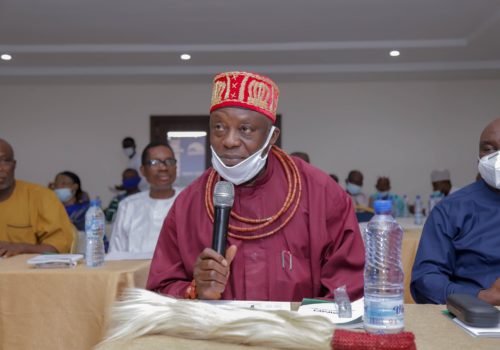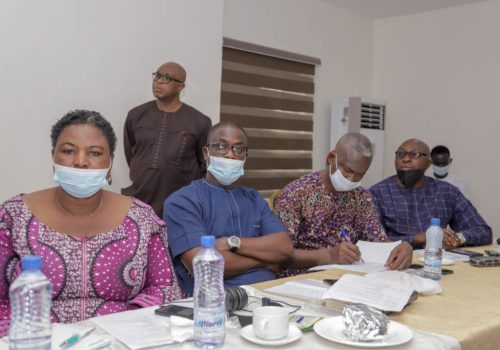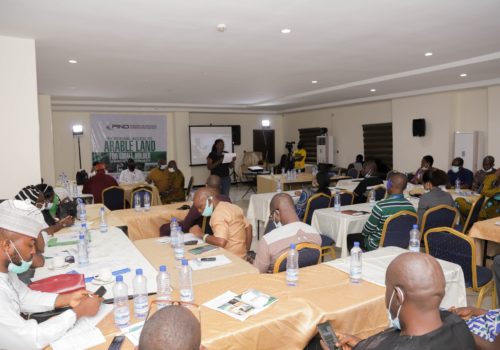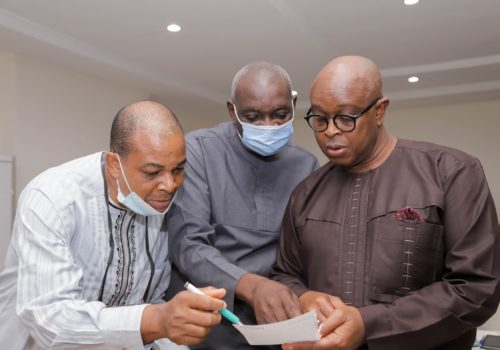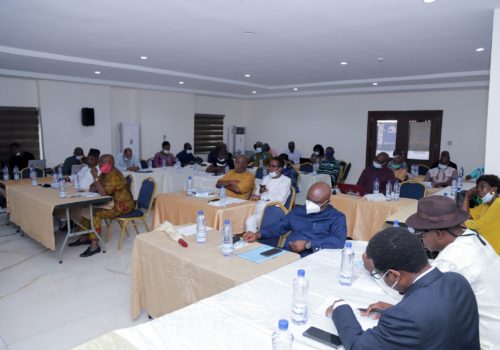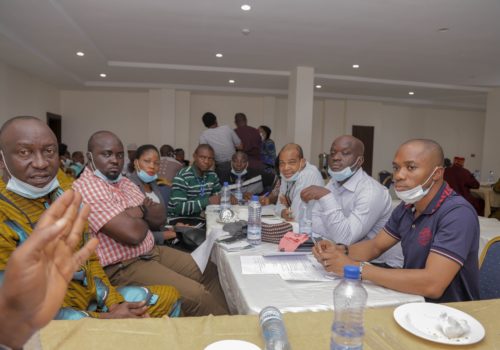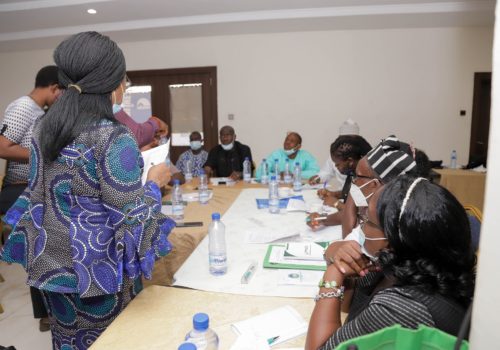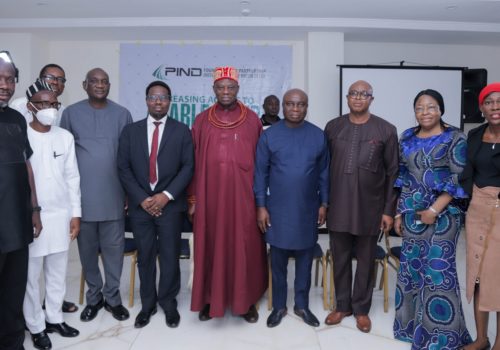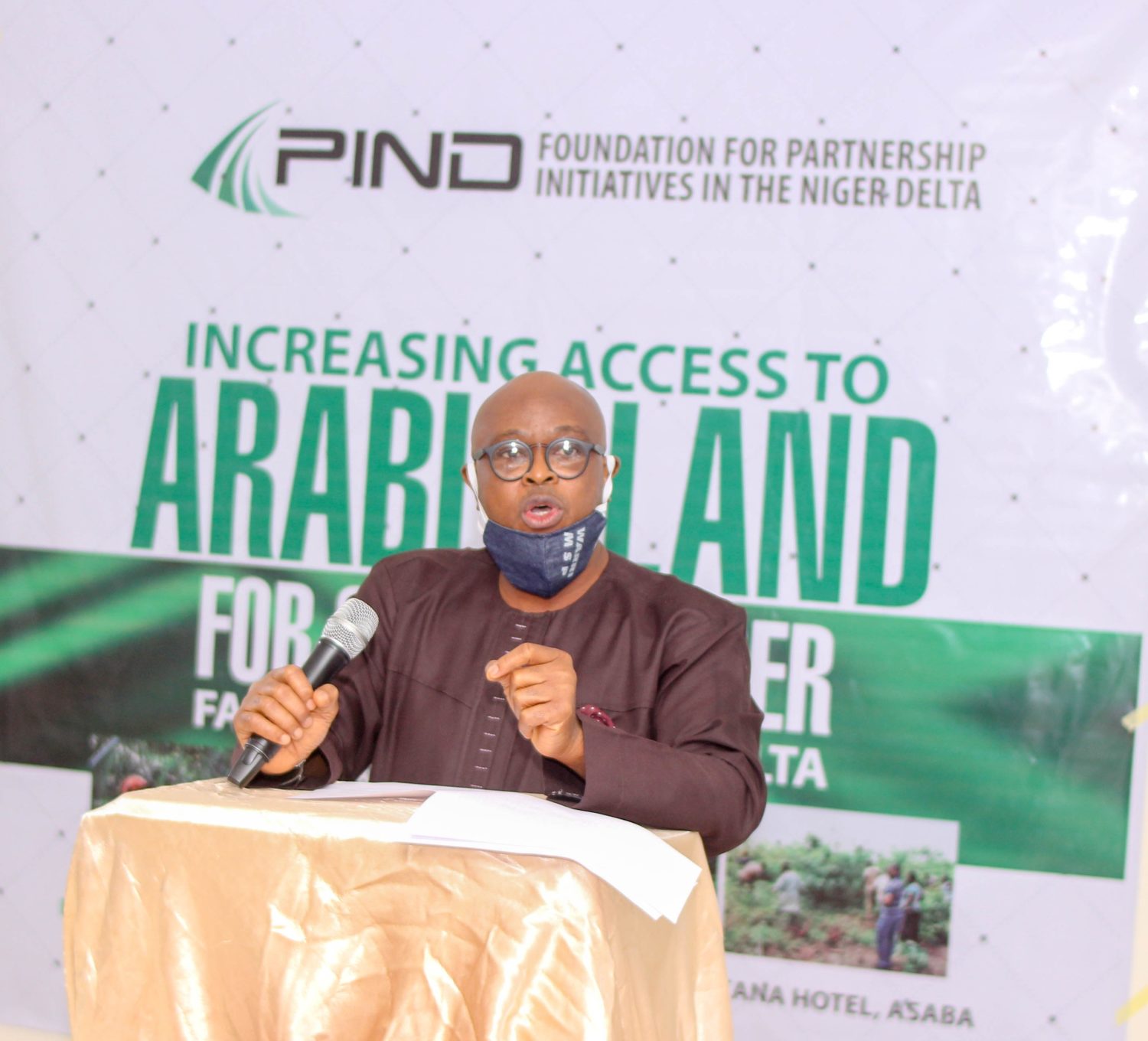 The Foundation for Partnership Initiatives in the Niger Delta (PIND) convened a high-level stakeholders roundtable in Asaba on Wednesday, March 31, 2021 to address constraints of inadequate arable land for agriculture in the Niger Delta.
The Foundation for Partnership Initiatives in the Niger Delta (PIND) convened a high-level stakeholders roundtable in Asaba on Wednesday, March 31, 2021 to address constraints of inadequate arable land for agriculture in the Niger Delta.
The session, which brought together relevant stakeholders in the agricultural sector in the Niger Delta, was themed “Increasing Access to Arable Land for Smallholder Farmers in the Niger Delta”, with an overarching goal to influence government, community leaders, and investors to reach shared agreements on how to make arable land more accessible for smallholder farmers and agricultural investors in the Niger Delta. Prior to this Roundtable, PIND had conducted a study on access to agricultural land in three focal States of Delta, Edo and Ondo, particularly examining the public policies regarding land access in these States and how such policies are being implemented.
In his opening remark at the Roundtable, PIND’s Executive Director, Dr Dara Akala, represented by Mr Chuks Ofulue, the Foundation’s Advocacy Manager stated that ‘access to land is a fundamental means whereby the poor can ensure household food supplies are met and generate income through production and processing as a means of livelihood’’, going on to note that, despite this, ‘’access to arable land remains a major constraint to the increased productivity of smallholder farming in Nigeria and the Niger Delta – limiting the potentials for economic development in the region, raising the need to find lasting solutions to the challenge’’.
Speaking at the event, Delta State Commissioner for Agriculture, Honourable Julius Egbedi said “The system of communal land ownership in the past has always been by Family inheritance. The idea of land banking is a good one and we thank PIND for organizing this very important session”. Professor Biyi Daramola of the Federal University of Technology, Akure, Lead Consultant for the access to land study, represented by Adeboyega Oguntade of the same institution noted that “for land banking to work, one thing the Presidential Technical Committee on Land Reform has been talking about for years now must be undertaken: that is the issue of land titling and registration”. His Royal Majesty, Obi Kikachukwu, who represented the Council of Traditional Rulers at the Roundtable said the communities have been yearning for a forum like this to discuss this very important issue of access to land. He went to say, “I thank PIND for ensuring that community leaders are carried along in this discussion.”
At the end of the roundtable, Stakeholders drafted a communique prescribing concrete steps to address the key constraints in the land sector. PIND will work with Stakeholders in the 3 States to action these recommendations unanimously agreed upon.
In the last five years, working with its partners, PIND Foundation’s market-based solutions have established viable and mutually-beneficial relationships with key market actors and stakeholders in target agricultural value chains; reached 621,397 farmers and enterprises with information on best farming and business practices, with over 375,000 experiencing increased yield and productivity; facilitated the creation of over 30,000 jobs for the agricultural sectors where they work; and contributed to reducing conflicts within the region by building the capacity of over 10,000 peace actors on conflict mitigation and undertaking key interventions.
